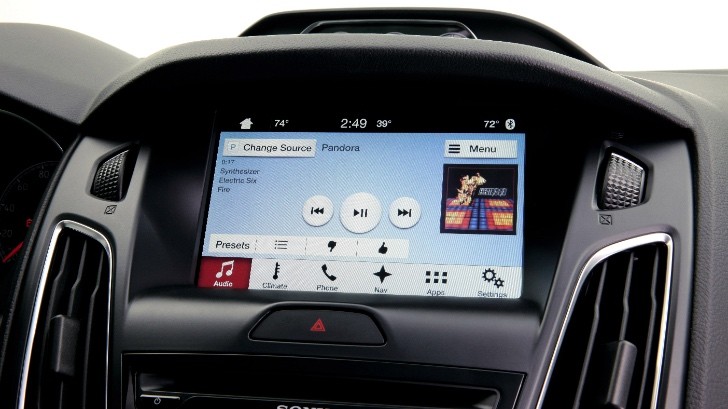In an effort to offer more services to its customers and an easier way to stay up to date with the latest software, Ford just announced that it will be teaming up with Microsoft again. The announcement refers to using a cloud-based system for sending updates to the infotainment systems installed inside the latest models.
The two companies are working together again, after Ford initially dropped Microsoft and went with Blackberry’s QNX software to bring out the new Sync 3 system. The IT giant’s Azure global cloud-based network will be used here, to offer the latest software for people driving blue oval branded cars.
Basically, the Dearborn automaker will allow you to update your car wirelessly and without having to go into a dealership, saving both money and, especially time. The only drawback is that this kind of support will only be offered for the new Sync 3 system so older versions will be left to the previous solutions.
“It’s better for the customers, better for the dealer and better for Ford,” said Don Butler, Ford’s executive director of connected vehicle and services for Detroit News.
Of course, all of these updates will be free of charge and sent right away to the cars as soon as they are available. The process will be simple and involves minimum input from the driver/owner.
For example, Tesla has issued more than one of these updates over-the-air and they have changed the behavior of their cars by quite an impressive margin as well.
The latest update for the P85D model even offered an improved acceleration when in Insane mode, allowing the drivers to go 0.1 seconds faster to 100 km/h (62 mph). Those sort of things used to be done on conventional cars with some heavy tuning involved. Not anymore.
Basically, the Dearborn automaker will allow you to update your car wirelessly and without having to go into a dealership, saving both money and, especially time. The only drawback is that this kind of support will only be offered for the new Sync 3 system so older versions will be left to the previous solutions.
“It’s better for the customers, better for the dealer and better for Ford,” said Don Butler, Ford’s executive director of connected vehicle and services for Detroit News.
Of course, all of these updates will be free of charge and sent right away to the cars as soon as they are available. The process will be simple and involves minimum input from the driver/owner.
It’s just the last name to be added to the list
Ford is not the first or the last company to adopt such cloud-based solutions for a complex problem. Others have been offering such services for quite some time now, like the FCA Group or Tesla, services that solved a lot of issues without too much expense or hassle.For example, Tesla has issued more than one of these updates over-the-air and they have changed the behavior of their cars by quite an impressive margin as well.
The latest update for the P85D model even offered an improved acceleration when in Insane mode, allowing the drivers to go 0.1 seconds faster to 100 km/h (62 mph). Those sort of things used to be done on conventional cars with some heavy tuning involved. Not anymore.
